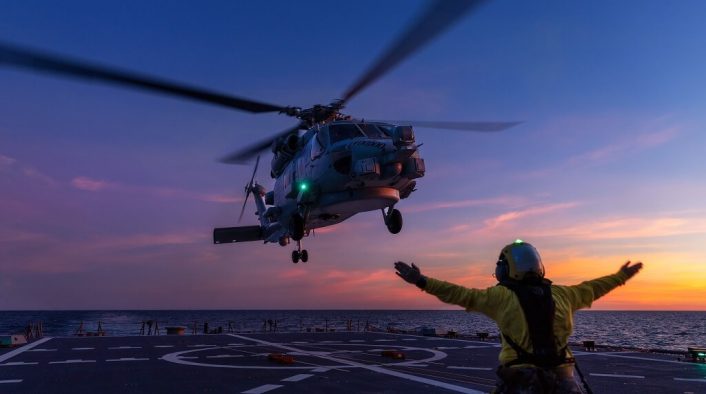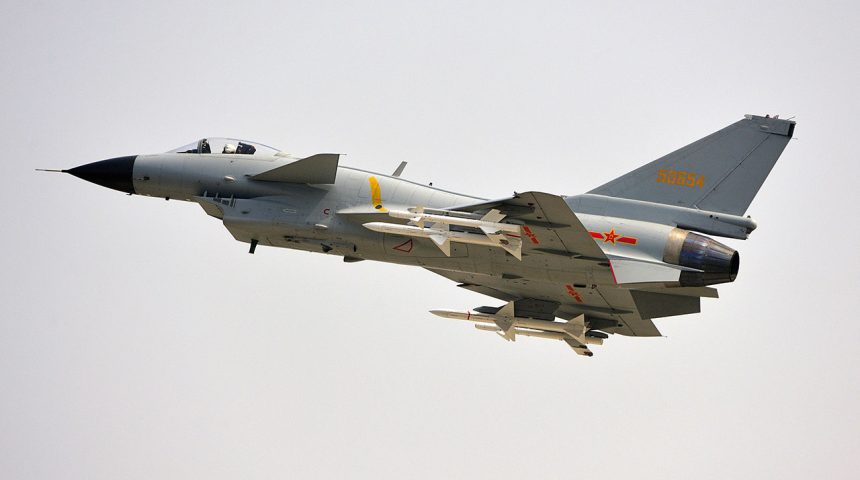The incident occurred in international waters in the Yellow Sea. The Australian helicopter was forced to take evasive action after the Chinese jet released flares along its flight path.
On May 4, 2024, a Royal Australian Navy MH-60R Seahawk, launched from HMAS Hobart, was intercepted by a People’s Liberation Army Air Force fighter jet as it was taking part in a UN mission in international waters in the Yellow Sea to enforce sanctions against North Korea. The Chinese aircraft then released flares in the flight path of the MH-60R, forcing it to take evasive actions.
While there were no injuries sustained by ADF personnel or damage caused to the MH-60R helicopter, the Department of Defence stressed this was an unsafe manoeuvre which posed a risk to the aircraft and personnel. Australia expects all countries, including China, to operate their militaries in a professional and safe manner, said the statement.

Further details were released by Defence Minister Richard Marles, who mentioned the fighter aircraft was a J-10. “The PLA Air Force plane dropped flares about 300 metres in front of the Seahawk helicopter and about 60 metres above it, requiring the helicopter to take evasive action in order to not be hit by those flares,” Mr Marles said in a statement.
The evasive maneuvers were meant to reduce the risk of ingesting a flare into the helicopter’s rotors and intakes, avoiding severe damage. A similar incident happened also last year, when a Canadian CH-148 Cyclone helicopter was conducting routine exercises in the South China Sea and was intercepted by two J-11 fighter jets.
In 2022, a Royal Australian Air Force P-8A Poseidon Maritime Patrol Aircraft was involved in an unsafe intercept by a PLAAF J-16 fighter jet, with the latter cutting across the nose of the P-8 and releasing chaffs. Some of the chaffs were ingested by the engines of the Poseidon, which however was able to return to base safely after the incident.
The episode is just the latest of a long list. As you may remember, the Department of Defense released last year declassified material, including photos and videos, shot during 15 recent cases of unsafe intercepts. In multiple occasions, the intercepts involved close approaches at high speeds, cutting across the flight path and the release of chaff and flares in close proximity of the intercepted aircraft.









